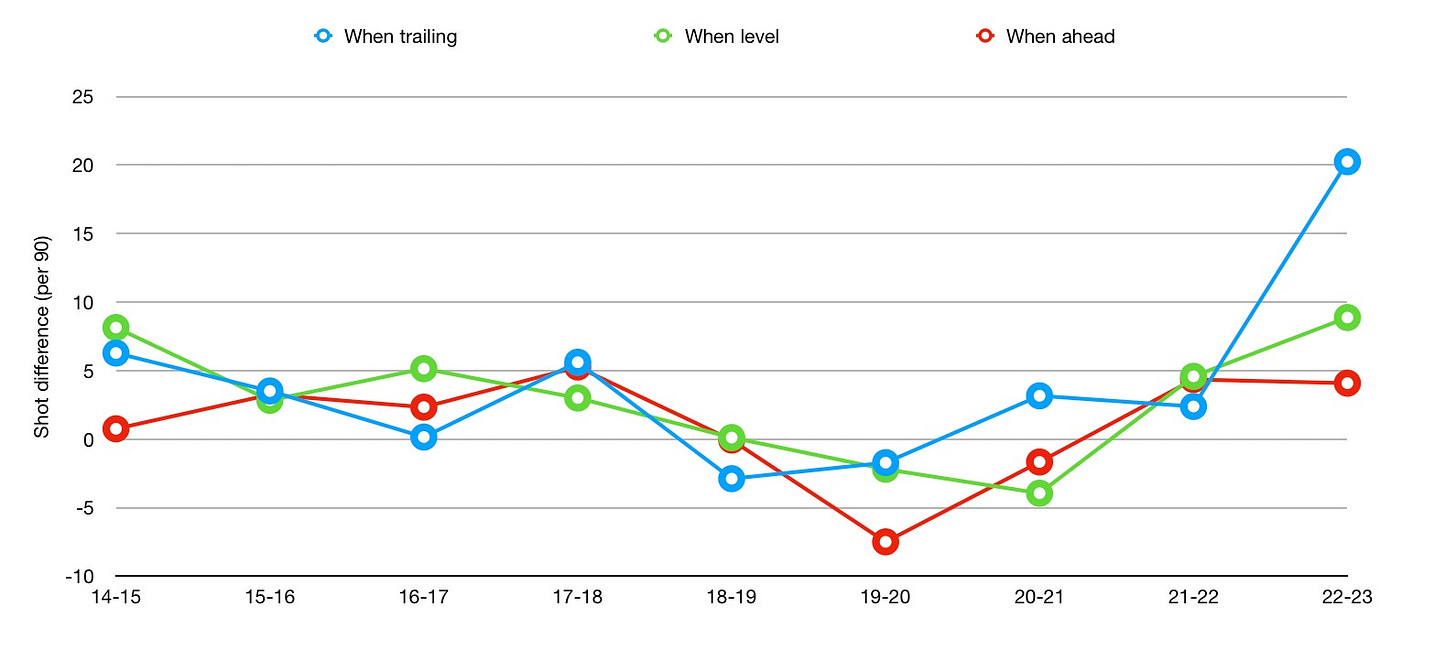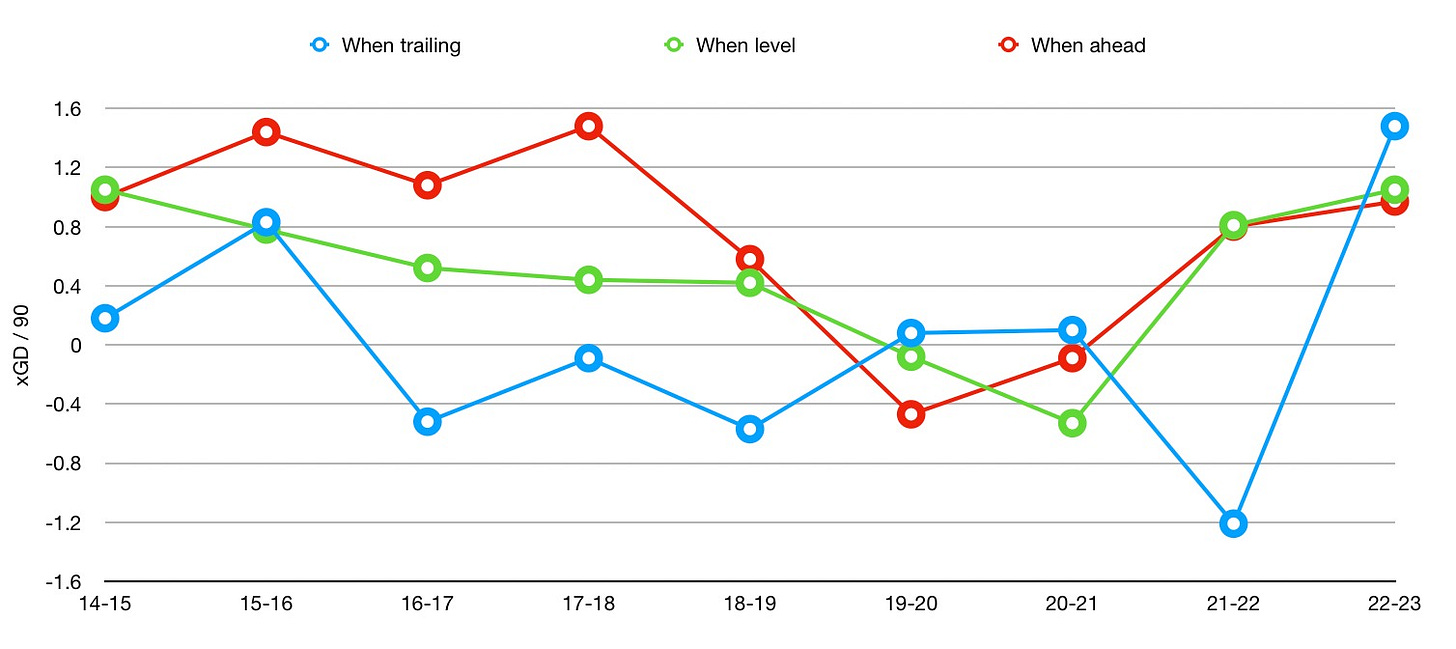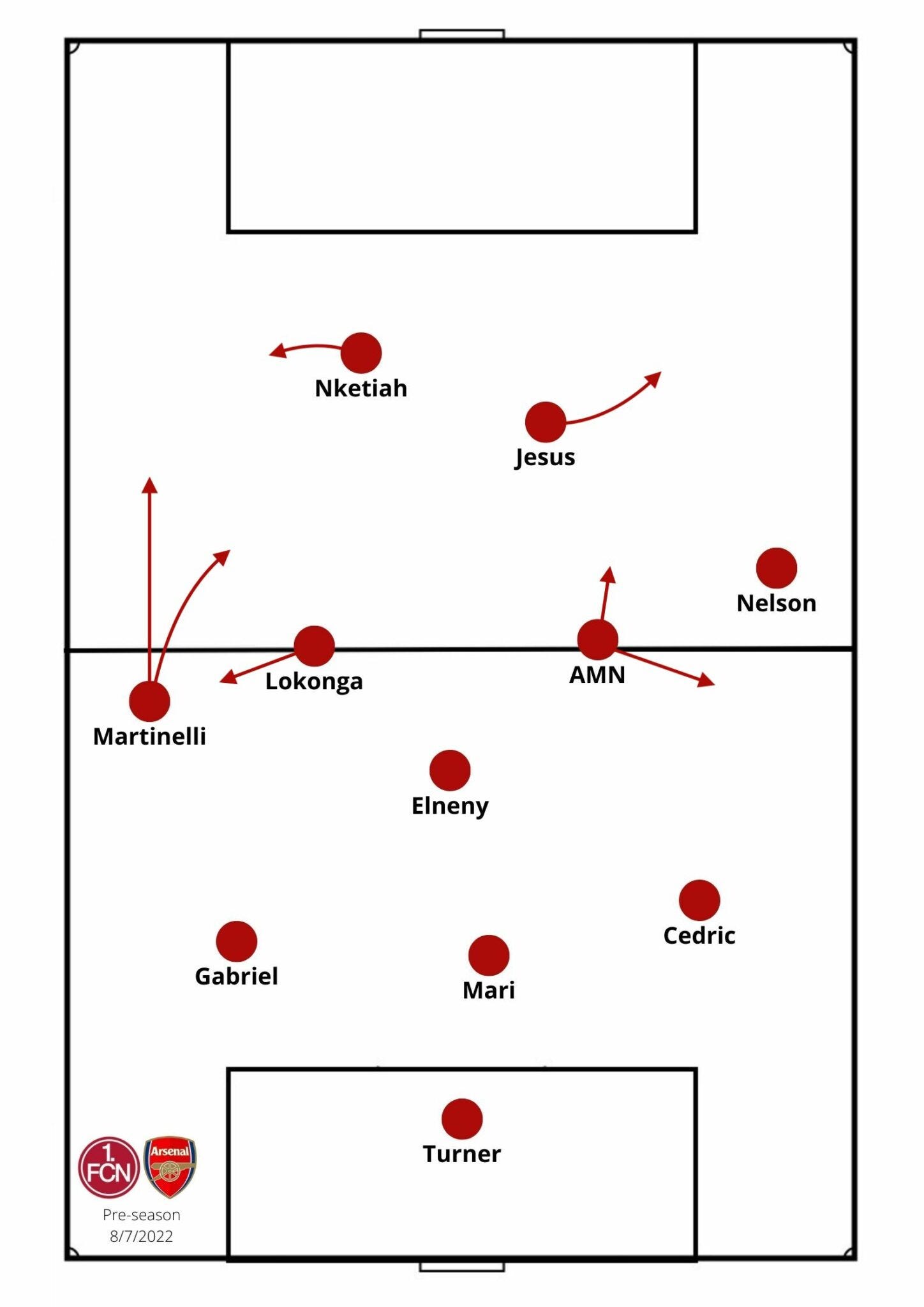It isn't luck: Arsenal have mastered comebacks
Arsenal couldn't make comebacks last season. Now they can and it isn't all luck.
A quick look back at Arsenal being behind before, later today, a look ahead at Sporting CP.
Contains the image of Mikel Arteta putting his players in straitjackets, a new tactical shape and a little Arsène Wenger love.
When Arsenal went behind in 2021-22, it felt bad. Really bad. The fine football and excellent run of form that put Mikel Arteta’s side in pole position just hit a brick wall any time the side conceded the opening goal of a game.
This was fine for a long while — Arsenal trailed just twice in 11 league games from 11 December 2021 to 13 March 2022, coming from behind to beat Wolves in of those games and conceding an injury time winner to Manchester City on the other occasion — but then an inability to find a way back into games cost the club Champions League football. Across the next five games Arsenal trailed four times and lost all four games, then went behind twice more in the final seven games of the season and lost those two matches as well.
Heading into 2022-23, whether or not Arsenal could turn games around was a huge question. And now this has happened.
No team in the Premier League has picked up more points from losing positions this season. Arsenal have gone behind in eight games and gone on to win 15 of the 24 points available from them anyway.
No team in the Premier League picked up fewer points from losing positions last season. Arsenal trailed in 15 separate matches and won just four of the 45 points up for grabs.
And it is not just a question of having a bit more luck this time around. When the looked at over a regular 90 minutes, Arsenal are taking 20 shots per game more than their opponents when behind.
And these aren’t just pot shots. Arsenal’s expected goal difference per 90 when behind last season was awful; Arsenal were more likely to concede another than score when trailing. This season it is, with an admittedly small sample size, superb.
It is better than it has been since Understat starting covering this data in 2014-15.
Those stodgy, tight games in Arteta’s first seasons can be viewed as him focusing on how to manage games and exert as much control as possible. Viewing the team through that lens, it makes sense that they struggled to chase results — throwing caution to the wind went against everything Arteta was trying to implement.
But as the team has improved, as they have become more capable, and as Arteta’s trust in them to control games has grown, they have developed the ability to keep control while also tightening the screw.
And injuries may have helped. In pre-season it looked like Arteta wanted to play two strikers in these situations, pairing Gabriel Jesus and Eddie Nketiah. We saw signs of it at Crystal Palace and Newcastle late last season, we saw it against Nürnberg in pre-season, we saw it against Fulham back in September.
But Arsenal have now proven their ability to control games and Arteta is trusting his players to squeeze teams in their own half more than ever. We have become used to the manager’s 2-3-5 shape in possession but the team was in a 2-2-6 at times against Bournemouth, with one or both fullbacks joining the frontline and four, rather than five, players trusted to hang back, smother counter-attacks, and restart Arsenal’s own offensive efforts.
Those belts on the tactical straitjacket Arteta has placed on his team are loosening as they are being posed new questions and forced to search for new answers.
But there is still room for improvement. A look at the first graph above — I’ll just post it again below to save you the scrolling — shows how exceptional Arsène Wenger’s teams were at pummelling an opponent when ahead.
That is something Arteta’s side lack for now, obviously preferring to control things calmly makes even more sense when already ahead anyway. An ability to really put teams away having taken the lead would be another string to the bow of this Arsenal team. But one step at a time, right?
Ideally, of course, the team would never go behind in the first place, but it is crucial that any top side can respond when it happens. Arsenal have trailed in the Premier League for just 312 minutes this season — 219 of those have come since the start of February, it was going to happen at some point — and the team is responding excellently.
Just add it to the long list of things they have learned to do over the last 12-18 months.









